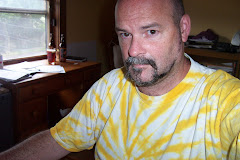1. You want to not understand your poem for as long as you can, because as soon as you start understanding it, all you can do is shape it into the simplest form of your understanding. You end up writing a poem that is an interpretation of the original poem.
2. If I am talking specifically to my mother, or to the butcher, or to Emily, I have a complete voice governed by vocabulary, tone and range of references … totally woven into each other by the fact that the listener is constant and imaginable.
3. Too general a sense of audience and the poem wavers between different registers of your own voice.
4. To write differently, posit a different listener, in order to expand the range of experiences that come into the poem. I have to speak to someone I not have spoken to before.


 I was torn between which photos of her to use (there are so many). I skipped all the "chin in hand" (too yearbooky) photos and went with these which range from stormy Jorie to blue Jorie to fiery Jorie.
I was torn between which photos of her to use (there are so many). I skipped all the "chin in hand" (too yearbooky) photos and went with these which range from stormy Jorie to blue Jorie to fiery Jorie.



1 comment:
I have to agree with you. (You're a smart smart man.) Jorie was a biiiiig part of my early poetness. The book Erosion blew the top of my head off as a 20-year-old. I stuck with her and found a lot of the work following that book beautiful (if not always memorable.) I learnred how to stretch gestures from The End of Beauty and The Region of Unlikeness. I carried Materialism around, like some folks do the Bible. But she lost me with the Errancy. It's just too mannered at this point. So obscure and hermetic that it defies discussions of "accessibility and difficulty."
She's a smart broad though.
Post a Comment